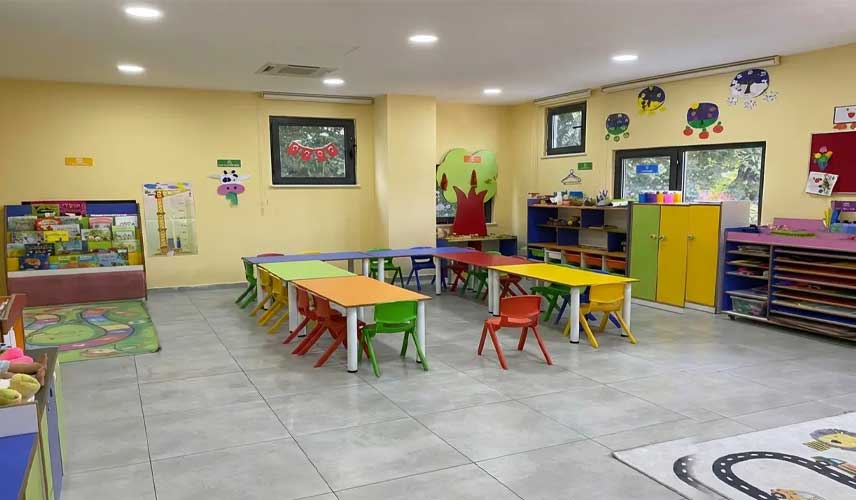
14 Effective Methods to Improve Children's School Success

Parents are the first and most important teachers of children. When it comes to increasing children's school success, they have significant roles to play. Many studies have shown that families behaving correctly in this regard are extremely effective, regardless of their financial situation or the educational level of the parents. To ensure your child's success in the educational process, you should consider the following recommendations.
1.Learn Who's Who at Their School
There are many people at your child's school who can help with their learning, navigating the school environment, and developing socially and emotionally. Learn the names and responsibilities of teachers, administrators, and counselors. This way, you will know whom to turn to for a specific issue and who to consult.
2.Meet with Their Teacher
Meet your child's teacher and express your interest in your child's situation and your desire to help them learn. Ask them to contact you if any issues arise. Collaborating with the teacher allows you to learn more about your child's personality, problems, and attitudes.
3.Attend Parent-Teacher Meetings
One of the things to do to increase children's school success is to attend meetings where parents and teachers come together to discuss. You should do this whether your child's situation at school is good or bad. Additionally, if you have any concerns, look for ways to discuss them privately with the teacher.
4.Regularly Monitor Your Child's Situation
Find out how your child is doing compared to other children in the class and if there are any actions you need to take. If a child is failing compared to the class average, it is necessary to investigate the situation and seek solutions without delay. The earlier you act on this, the quicker you will achieve results.
5.Ensure They Complete Their Homework
Indicate that you value their daily school assignments and expect them to value it too. Set aside a special place for them to study and establish a time frame. During this time, ensure they stay away from phones, television, and computers. Make sure there are no distractions around them.
You may be reluctant to help with their homework or unable to do so for some reason, but you should definitely show that you are interested in the subject. Help them stay organized. Ask about their homework and ensure they complete it. Provide the necessary materials. Don't forget to appreciate their efforts.
6.If Necessary, Seek Help for Homework
If you are struggling to help your child with homework or school projects, check if the school has a program that provides support to students outside of class hours. Getting help from an older student or a friend or neighbor can also be a solution.
7.Monitor Television and Internet Use, and Video Game Playing
Statistics show that in some countries, such as the USA, children spend more time on video games, the internet, and television than on homework and other school-related activities. Keep an eye on your child in this regard. Ensure they use the internet and social media safely and positively.
8.Encourage Your Child to Read
One of the most important things you can do to help your child succeed in school and life is to ensure they love reading. Well-chosen books help with school subjects and the development of positive personality traits. More importantly, this helps them develop a lifelong learning habit and opportunities for self-improvement.
9.Talk to Your Child and Listen to Them
Developing the habit of speaking and listening is important for children's school success. In young children, language skills develop by listening to the conversations of their parents and other family members and responding to these conversations. Children who are not spoken to enough and are not encouraged to speak may struggle to learn to read, which can lead to other school problems.
Be sure to set a good role model in this regard. Show your child that you are interested in what they say. If you are a good listener, they may take you as an example and benefit from it. Children who have not learned to listen carefully may struggle to follow instructions and concentrate during lessons.
10.Volunteer at Their School, Join Parent/Teacher Groups if Available
School administrators and teachers appreciate parents helping the school. You can contribute to your child's school in various ways. For example, you can volunteer for a task in your child's classroom or in a section of the school such as the library, laboratory, or gym. You can prepare decorations or food for a school event. You can participate in events like "Parents' Night" and attend performances of your child and other students. By joining a group like the School Family Association, you can meet other parents, exchange ideas, and look for ways to improve the school.
11.Develop a Positive Impression of Education
The things we say and do in daily life help our children develop a positive attitude towards school and learning. By showing them that we value education and use it in our daily lives, we can be a positive role model.
Additionally, by showing interest in our children's education, we can create an awareness in them about the importance of education, that it can be as enjoyable as it is beneficial, and that the effort put in is worthwhile.
12.Learn About the Opportunities Offered by the School
Talk to school officials and other parents to find out if there are music, sports, or other activities that your child might enjoy. Also, inquire about special lesson programs.
13.Encourage Your Child to Take Responsibility and Work Independently
Taking responsibility and working independently are important qualities for children's school success. Clearly state to your child that they need to take responsibility for what they do at school and at home. Help them develop these aspects by setting reasonable rules. Observe how they behave after school, in the evenings, and on weekends. If there are things you want to be different, discuss them and set rules. If you are not at home when they come back from school, talk to them on the phone about what they need to do. You can also do this at the beginning of the week or every morning. Encourage them to do their homework and read books even when you are not around. Check if they are following what you said and apply reasonable consequences if necessary.
14.Promote Active Learning
Children need active learning in addition to activities like doing homework, learning something, and reading in a quiet environment. Active learning involves asking and answering questions, solving problems, and exploring interests. To encourage this type of learning, listen to your child's ideas and discuss them. Allow them to ask questions and express their thoughts during the times you read together. Having this kind of exchange with their parents can increase their participation and interest in school life.
Child Development and Education Other Content in the Category

Child Development and Education
Ways to Develop Fine and Gross Motor Skills in Children

Child Development and Education
First Day at Kindergarten: 12 Tips to Ease the Transition

Child Development and Education
6 Tips for Success

Child Development and Education
8 Reasons for Attention Difficulties in Children

Child Development and Education
Problems Related to Homework and Solutions

Child Development and Education
15 Life Skills Your Teen Should Acquire

Child Development and Education
35 Positive Messages Your Child Needs to Hear

Child Development and Education
10 Characteristics of Good Enough Parents

Child Development and Education
Child Development: The First 5 Years

Child Development and Education
7 Things You Need to Do to Raise a Well-Rounded Child

Child Development and Education
14 Effective Methods to Improve Children's School Success

Child Development and Education
8 Tips for Positive Parenting

Child Development and Education
10 Ways to Communicate Well with Children

Child Development and Education
How Does Changing Schools Affect Children?

Child Development and Education
